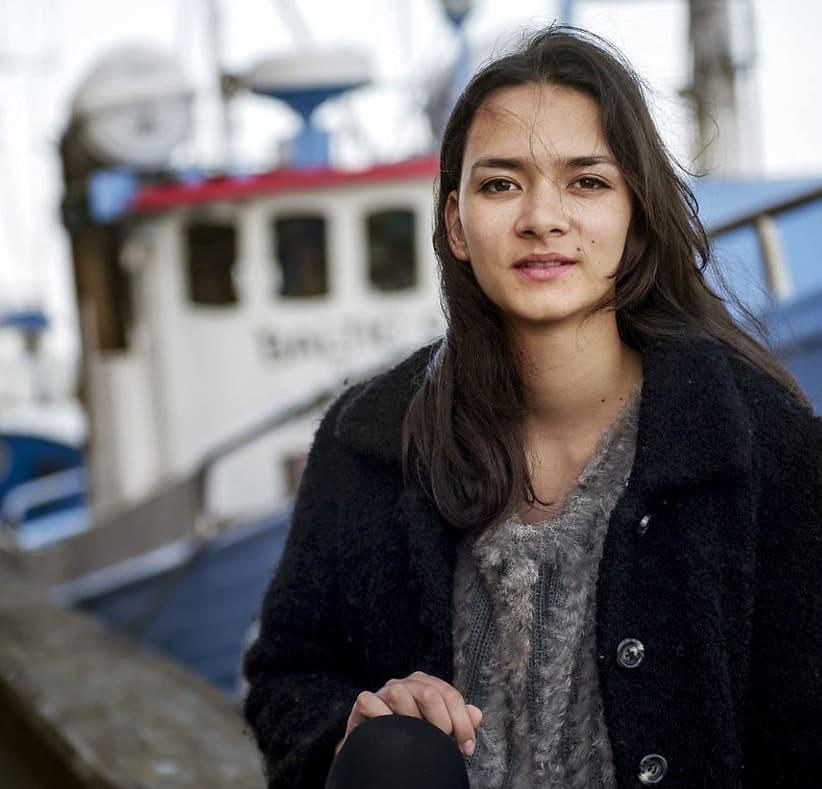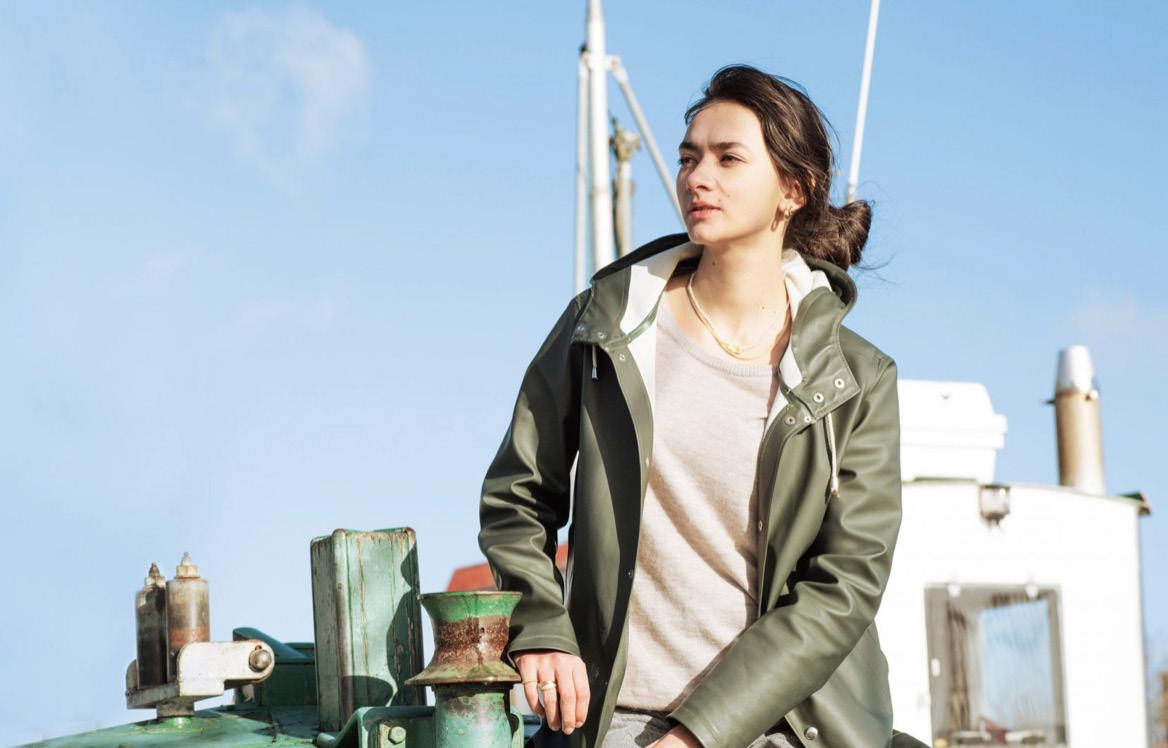
5 minute read
NIMA TISDALL
by ibpunion
By David Thomassen
Amid a hectic, fun, stressful and exciting intro week filled with new relationships and impressions, there was scheduled an event where former IBP students would come and share what they had done following the completion of their education. A bit hungover and tired, this did not intrigue me all that much, this however changed when Nima Tisdall walked into the room. The young and eccentric founder of Blue Lobster filled the room with energy and gave an inspiring talk on her entrepreneurial journey. Nima’s charismatic presentation stayed with me for a long time, and was the reason I chose to seek her out for a conversation.
Advertisement
Could you start by briefly sharing the entrepreneurial and educational journey that has led you to where you are today?
It’s actually my 10-year anniversary for starting at CBS, I started right after high school. I studied my first year, and then I thought that CBS wasn’t really something for me, so I decided to take annual leave (årlov), and went backpacking in South America. After this experience I decided to give CBS another shot. I Reenrolled and finished my bachelor’s in 2016 and started on my master’s in IBP right after. I structured the way in which I took my masters quite creatively, which made it possible to do a data analysis internship at the UN, get a full-time job there for a while and to visit Nepal to do research for my master thesis. It was kind of a mess, but it was fun, and it was cool to kind of tailor my own education. While taking my master’s I also started Blue Lobster, we began operations in 2019, around the time I defended my master’s thesis, I have been working on it full time ever since.
How did you get the idea for Blue Lobster and what does the company do?
Blue Lobster is a digital marketplace for seafood, we connect fishermen using sustainable equipment directly with customers. Right now, we are mostly focusing on larger B2B customers, with restaurants being our largest customer segment. Our biggest mission is to create an economic incentive for fishermen to apply sustainable practices, as we believe the green transition won’t be successful before there is an economic incentive driving it forward. When we got into the industry there was no reason for anyone to use sustainable methods, because no one was paying a higher price for it. The idea for the company sparked from my American cofounder asking about where all the fresh fish was, as she expected Denmark to have a ton, because we are surrounded by oceans everywhere. The fact that most seafood was old and quite expensive made us curious, so we literally went down to harbors knocking on boats and asking fishermen what they get paid for their fish and who they sell it to. Looking at this, we discovered a very inefficient supply chain with the produce trading hands five or six times before reaching the final buyer. After talking to every expert we could find, we found out that if we could fix the expensive transport, and only have one step between fishermen and final customer we could decrease co2 emissions from transport and offer the fishermen a price premium. The power to pay fishermen about twice what they would normally get gave us a lot of power, which we decided to use in a responsible way, choosing to exclusively work with the fishermen using the most sustainable methods and equipment.
Did you always have entrepreneurial aspirations, or did they develop at a specific point?
I didn’t actively know that I had entrepreneurial aspirations, but I started my first company when I was sixteen in high school. We were too young to have our own bank account and CVR number, so we did it through my friend’s parents, who cofounded the company with me, and I loved it. I thought it was fun, and we made money, were able to hire part time workers, get an intern and things were good. We stopped when we thought it was time to get a “real job” or like a “real education” and get serious with life. But generally, I never thought of myself as an entrepreneur, I just loved creating stuff, I love starting something from scratch. However, when I was at CBS I thought I would end up working for the UN or as a consultant. It was when some of my friends and CBS started creating companies that I thought “I’d love to do that!”.

You’ve had a great deal of success at a relatively young age, has it all been sunshine and rainbows, or has the journey been a bit more challenging than that?
I think it’s always ironic when you’re watching other people’s journeys that it seems super easy, but I think very few journeys are, at least mine certainly wasn’t. We were trying to get into a very established industry and disrupt it, which meant that a lot of traditional players didn’t want us to succeed and that at the start, no one wanted to partner with us. As no one wanted to drive the fish for us, we had to get our own van and drive it ourselves. Another example is that the fishermen buying from us received threats akin to “if you work with Blue Lobster you’re going to get alienated from the industry”. Our team members were also threatened at certain times, and we experienced having our fish stolen and being told that it was a consequence of us trying to address the issues in the industry. In retrospect I’ve started to realize how much shit we had to deal with, a fun example was at one of the big old school wholesalers the CEO would come out where everyone was working and be like “today we’re going to fuck up those Blue Lobster girls, come on!” and use that as a sort of rallying cry. We knew this because some friends of ours used to work there. Finally, Covid and the way it affected the restaurant industry has been a big existentially challenge to the company, as it happened right around the time we got investment on board in 2020.
Has taking your master’s degree in IBP helped you in some of your ventures, what have you been able to take from it?
I think IBP was the perfect program for starting Blue Lobster, because we are working with fish which is a very regulated resource. It is a common good and fishermen are therefore bound by quotas set at an EU level and then issued down by Denmark. We’ve been in touch with the fishing ministry and built out new technologies to report all the catches of fishes correctly to the ministry. It has also been funny to see the things I read about in IBP play out in practice exactly as they did theoretically when studying about them.
Finally, if you had to give aspiring entrepreneurs one piece of advice what would it be?
It’s a good question, and I feel like I answer it differently depending on the day I’m asked. I think a common mistake is to wait for too long before testing your idea. The reason for this is that you can sit in your own head, or with a partner, and talk about how perfect this idea is for months, but if you can’t communicate it to customers and get them to commit, then you’re never going to build a business. Another common mistake is for people to be afraid that someone will steal their idea, this happens so rarely, and is a large misconception in the startup environment. Go out and speak to people, because instead of having people steal the idea, what is most likely is that they’ll say, “You know what, I know someone you should talk to”. To distill my advice down to its core, firstly just get started, and start talking to customers quickly, secondly ask for help, people in the Danish ecosystem are so friendly, and finally find people who compliment your skillset and that you don’t mind spending all your time with, because you will see this person more than anyone else.









